British slang is a type of informal language that is used in the United Kingdom. It is often used to express emotions, opinions, and ideas in a more concise way. British slang can be used by people of all ages and backgrounds, and it is constantly evolving.
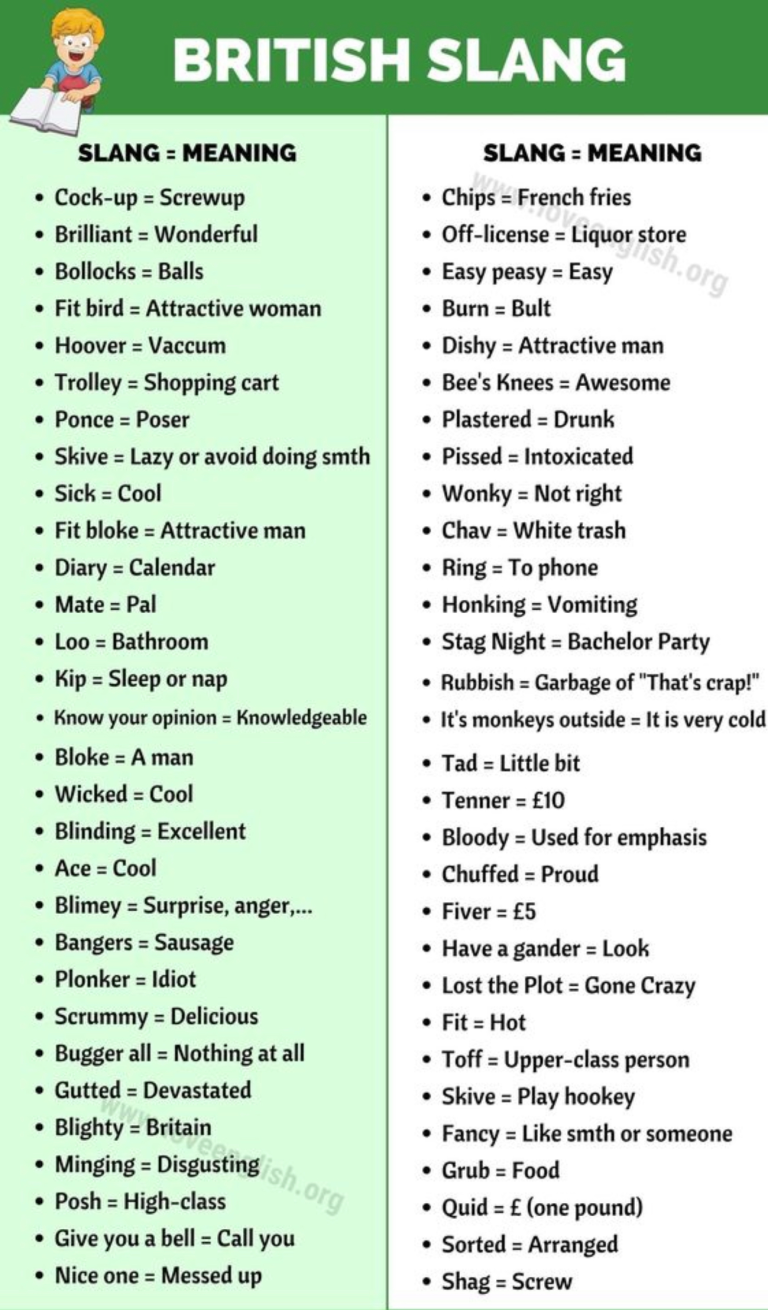
What is British slang?
British slang is a type of informal language that is used in the United Kingdom. It is often used to express emotion, to make a point, or to simply be humorous. British slang can vary from region to region, and it can also change over time. However, there are some terms that are considered to be classic British slang, such as “”cheers,”” “”blimey,”” and “”wanker.””
History of British slang
British slang has a long and rich history, dating back centuries. It is believed to have originated in the working class, as a way for people to communicate with each other in a way that the upper classes would not understand. Over time, British slang has evolved and changed, and it is now used by people of all social classes.
Some of the earliest examples of British slang can be found in the works of Shakespeare. In his play “”Romeo and Juliet,”” for example, the character Mercutio uses the slang term “”egg”” to refer to a young woman. Other early examples of British slang can be found in the writings of Ben Jonson, Thomas Hobbes, and Daniel Defoe.
In the 18th century, British slang became increasingly popular, as it was used by writers such as Jonathan Swift, Henry Fielding, and Samuel Johnson. In the 19th century, British slang was further popularized by poets such as William Wordsworth, Lord Byron, and Percy Bysshe Shelley.
In the 20th century, British slang continued to evolve, as new terms were coined to reflect the changing social and cultural landscape. Some of the most popular British slang terms of the 20th century include “”cool,”” “”naff,”” “”chuffed,”” and “”blimey.””
Today, British slang is still going strong, and it is used by people of all ages and backgrounds. It is a vibrant and ever-changing part of the English language, and it is a valuable tool for communication.
Different types of British slang
There are many different types of British slang, each with its own unique meaning and usage. Some of the most common types of British slang include:
- Colloquialisms: Colloquialisms are informal words or phrases that are used in everyday conversation. For example, “”chuffed”” means “”pleased”” and “”buggered”” means “”exhausted””.
- Idioms: Idioms are phrases that have a figurative meaning that is different from the literal meaning of the words. For example, “”it’s raining cats and dogs”” means “”it’s raining heavily””.
- Slang terms: Slang terms are words or phrases that are used in a particular group or subculture. For example, “”chav”” is a slang term for a young person who is considered to be uncouth or tasteless.
- Regionalisms: Regionalisms are words or phrases that are used in a particular region of the country. For example, “”barm cake”” is a regionalism for a scone that is popular in the North of England.
It is important to note that not all British slang is considered to be polite or acceptable in all contexts. Some slang terms can be offensive or derogatory, so it is important to use them with caution.
Examples of British slang
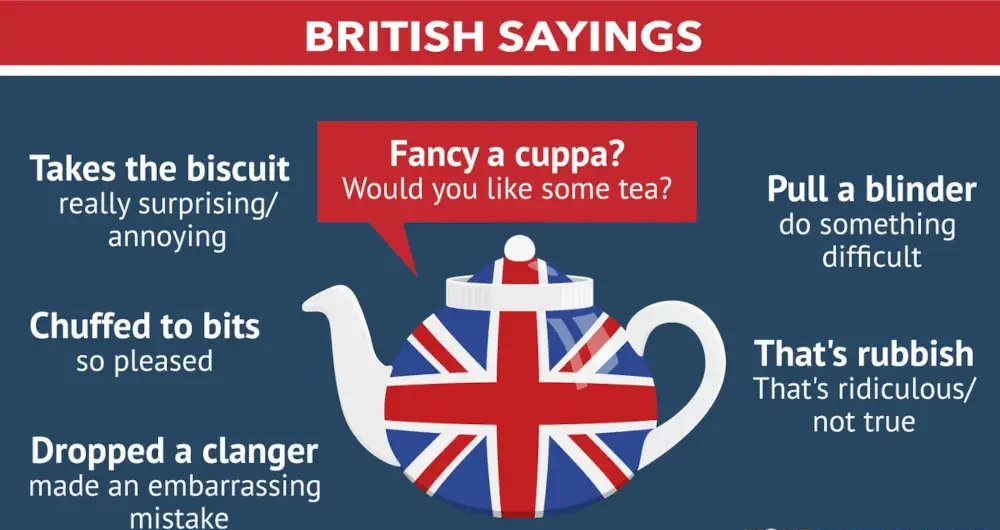
Here are some examples of British slang words and phrases:
- Cheers (thank you)
- Blimey (wow)
- Cor blimey (an even stronger version of blimey)
- Bloody hell (an exclamation of surprise or anger)
- Taking the piss (making fun of someone)
- Getting pissed (getting drunk)
- Bugger off (go away)
- No worries (don’t worry)
- You’re welcome (you’re welcome)
These are just a few examples of the many slang terms that are used in Britain. If you’re ever in the UK, be sure to listen out for these phrases – you might just learn a thing or two!
How to use British slang
British slang can be used in a variety of ways, depending on the context. Here are a few tips on how to use British slang effectively:
- Use slang in moderation. Too much slang can make you sound unprofessional or uneducated.
- Use slang in the right context. Some slang terms are only appropriate in certain situations, such as with friends or family.
- Be aware of the meaning of slang terms. Some slang terms can have offensive or derogatory meanings.
- Be creative with your use of slang. Don’t just repeat the same slang terms over and over again. Try to come up with new and original ways to use slang.
By following these tips, you can use British slang effectively and add some flavor to your speech.
Benefits of using British slang
There are many benefits to using British slang. Here are a few of the most notable:
- It can help you to connect with other people from the UK.
- It can make you sound more authentic and knowledgeable about British culture.
- It can be a fun way to express yourself and add some personality to your speech.
- It can help you to understand British humor.
Of course, there are also some potential drawbacks to using British slang. For example, it may not be understood by people from other countries. Additionally, some slang terms can be offensive or derogatory, so it is important to use them carefully.
Overall, the benefits of using British slang outweigh the drawbacks. If you are interested in learning more about British slang, there are many resources available online and in libraries.
If you’re interested in learning more about British slang, I encourage you to check out the resources listed above. You can also start using British slang words in your own conversations to see how they sound. And if you have any questions, please feel free to ask me in the comments below.
Now that you know more about British slang, why not try using some of these terms in your own conversations? It’s a great way to show off your knowledge of the English language and to connect with people from different cultures.

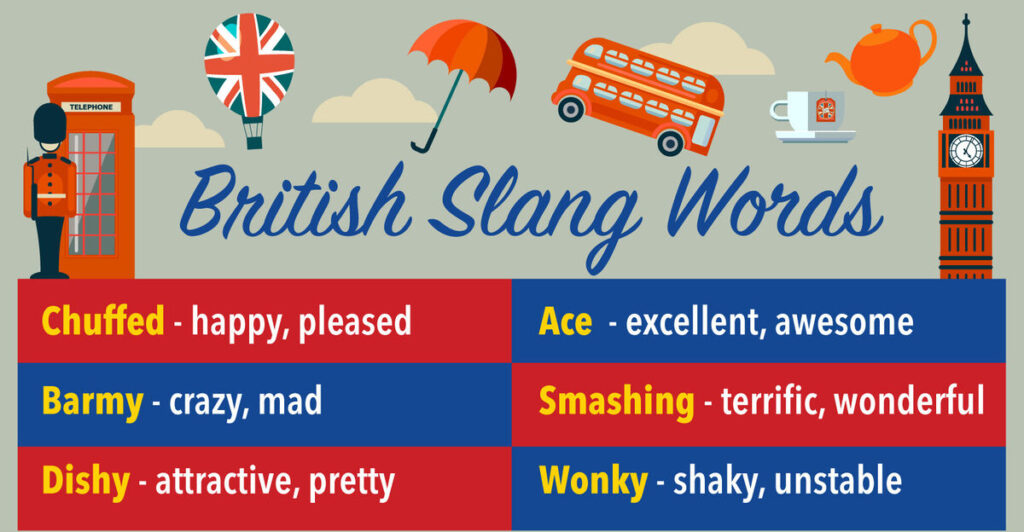
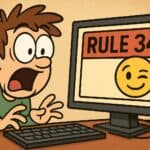

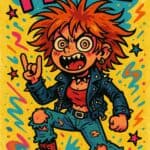


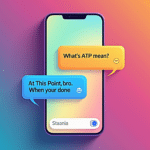
10 thoughts on “British slang”